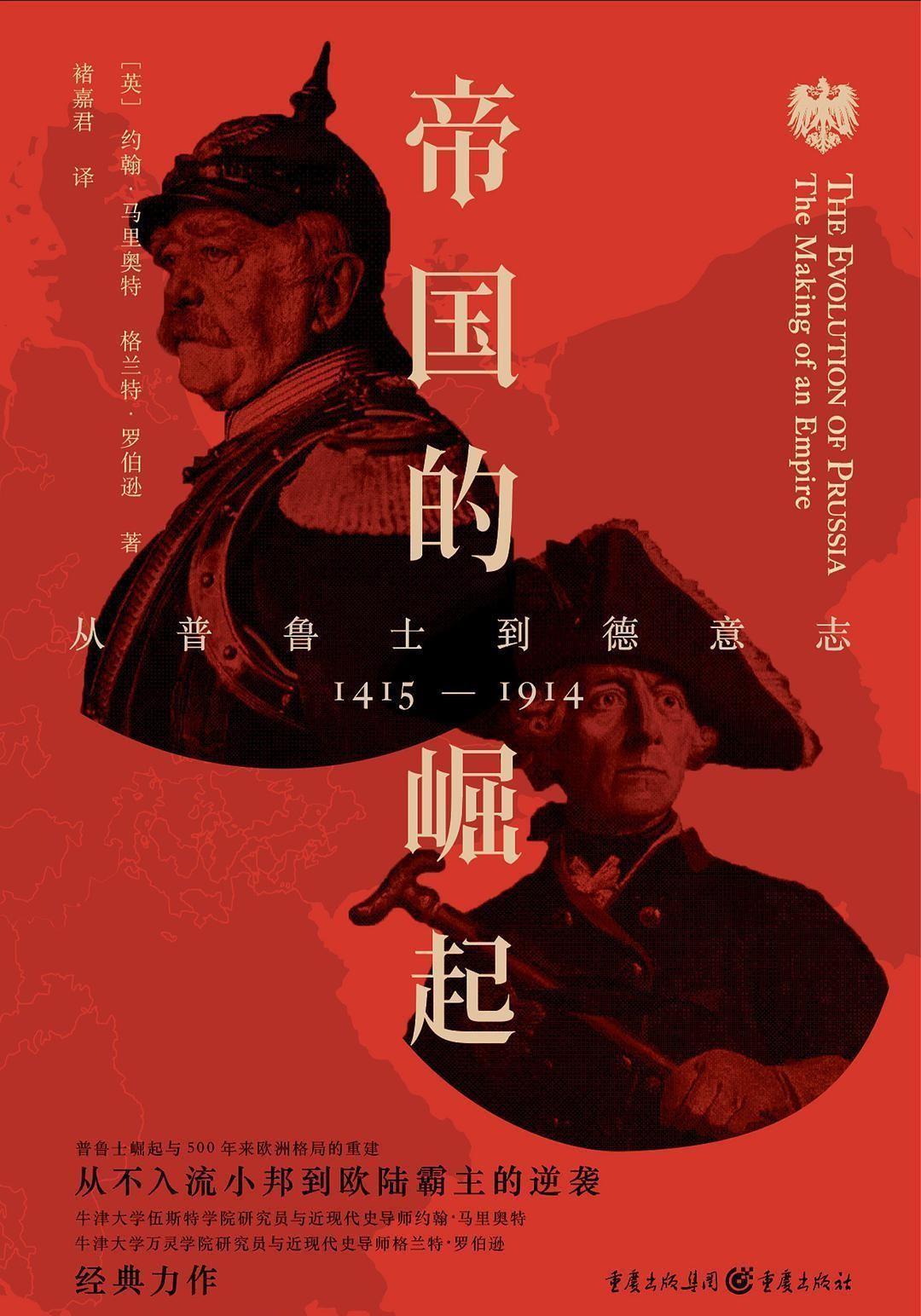The Qin Dynasty was the first unified dynasty in Chinese history, and the first existence that can be called an empire, and Qin Shi Huang Wasing Zheng was the first emperor in history.
But was the Qin Empire the work of Qin Shi Huang alone? Non-also, the Western Han Dynasty literary scholar Jia Yi, in the famous "On Passing the Qin Dynasty", believes that the reason why Qin Shi Huang was able to achieve the immortal deeds of "swallowing the princes of the second week and dying, performing the supreme and making the Liuhe, beating and flogging the world, and wielding the four seas" was actually "Yu Lie of the Sixth Dynasty, Zhen Chang Strategy and Yu Yunei", which was changed to the vernacular, that is, from the beginning of Qin Xiaogong's Canal Liang, it was already laying the foundation for Qin Shi Huang's unification of the world.

If you want to find an empire in Europe similar to the Qin Dynasty, I think it is the German Empire. In The Rise of the Empire: From Prussia to Germany, the Electoral State of Brandenburg, the predecessor of the Kingdom of Prussia, is depicted as the most inconspicuous of all the electorates of the Holy Roman Empire in 1415; 500 years later, on the eve of world war I, it had risen to become a European power vying for world supremacy.
From the Electorate of Brandenburg to the German Empire, there was a very key role, that is, Frederick the Great of the Kingdom of Prussia.
Due to the early death of his eldest brother Friedrich Ludwig and his second brother Friedrich Wilhelm, Frederick the Great was raised as crown prince from an early age, but he was very dissatisfied with the strict military discipline of his father, King Frederick William I of Prussia, and even tried to flee to England with his friends.
So why did Frederick the Great want to go to England? Because his mother, Sophie Dorothea of Hanover, was the daughter of King George I of England and Ireland, the first King of England and Ireland of the Hanoverian Dynasty, Frederick the Great had a very good relationship with his mother.
Under the influence of the Pro-Austrian Chancellor, Frederick William I chose Elizabeth Christina of Brunswick-Wolfenbüttel to marry Frederick the Great, a distant relative of the Habsburg family.
Frederick the Great was dissatisfied with his father, and naturally did not like Elizabeth Christina, but he used his wife to reconcile relations with his father, thus ensuring his crown princehood.
In 1740, frederick William I died and Frederick the Great ascended the throne smoothly, and he continued his father's strategy of strengthening the army, determined to expand the territory and advantages of the Kingdom of Prussia.
In the same year, the Holy Roman Emperor Charles VI died, and with no male heirs, his eldest daughter Maria Theresia became Grand Duke of the Habsburg Dynasty of Austria.
Although the Grand Duchy of Austria, the United Kingdom, the Dutch Republic, and the Russian Empire fully supported maria Theresia's succession, the Kingdom of France, Spain, the Electorate of Bavaria, the Electorate of Saxony, the Republic of Genoa, the Kingdom of Sardinia, the Kingdom of Sicily, and the Kingdom of Naples refused to recognize it, and Frederick the Great saw the opportunity and refused to recognize Maria Theresia's succession and immediately intervened in the War of the Austrian Succession.
During the war, Frederick the Great annexed the Austrian province of Silesia, and in 1745 he withdrew from the war in time, focusing on the whole army and economic development.
Frederick the Great knew that Grand Duke Maria Theresia of Austria would not give up and took the initiative to conclude the Treaty of Whitehall with Britain, but this made France, which was fiercely competing with Britain, very dissatisfied, and Maria Theresia, through the Prime Minister, Prince Cornitz-Rietberg, agreed with the Russian Tsar Elizabeth Petrovna and King Louis XV of France to prepare to retake Silesia.
Frederick the Great was not willing to sit still, took the initiative to launch a war against Austria, the outbreak of the Seven Years' War, in the face of Austria, France and Russia three strong enemies, Frederick the Great although many victories, but also several times facing the brink of subjugation, and finally in 1762 Russia Peter III took the throne, announced the withdrawal from the anti-Prussian alliance, Frederick the Great only eased up, saved Silesia, became one of the five giants of Europe.
In order to ease relations with Austria and Russia, in 1772, Frederick the Great united the two countries for the first time to divide Poland, and Prussia annexed Poland-Prussia, that is, West Prussia, and its national strength further increased.
In 1777, after the end of the Wittelsbach dynasty in Bavaria, Karl Theodor of Palatinate-Sulzbach succeeded to the throne, proposing to exchange Bavaria for Austrian Netherlands, and the Austrian Emperor Joseph II, with the support of Empress Maria Theresa, was also supported, but Frederick the Great feared that this would lead to Austria regaining power in Germany, and the following year declared war on Austria, and the Bavarian succession war broke out.
During this war, both sides avoided large-scale engagement, and eventually Austria occupied a small part of Bavaria' territory, while Bavaria was still succeeded by Theodore Elector, and Frederick the Great achieved his goal.
In August 1786, Frederick the Great died, and due to his poor relationship with his wife Elizabeth Christina, he left no heirs, and the throne was succeeded by his nephew Frederick Wilhelm II, and Prussia continued to advance in turmoil.
The Rise of empire: From Prussia to Germany is co-authored by John Mariot, a famous British historian, educator and politician, and a researcher at Worcester College at the University of Oxford, and Grant Robertson, a famous British historian, from which we can get many wonderful answers.